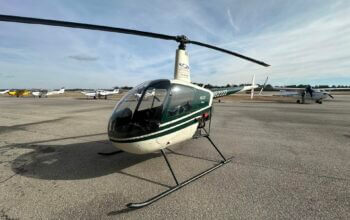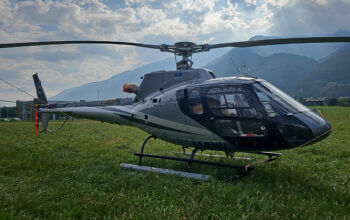Estimated reading time 5 minutes, 30 seconds.
The Canadian Business Aviation Association (CBAA), representing 50,000 highly skilled workers in a $12.1 billion industry, today expressed concern over the proposed “luxury tax” included in the federal government’s budget tabled on April 19. If passed, the tax will come into force in January 2022.
According to the CBAA’s president and CEO, Anthony Norejko, the government’s assumption that a small plane is an unessential high-end toy totally misrepresents how these aircraft are generally used.
“Given Canada’s vast size, complex geography and small population, small aircraft have been a niche tool to deliver personnel, food and supplies, equipment and other essential services to communities of all sizes, many of which have only the most basic airstrip for landing and take-off,” he explained.
“This action is unfair and unsupportable as Canadian taxes such as GST and applicable PST are already applied to the purchase of these aircraft and the personal use of an aircraft is already recognized as a non-deductible taxable benefit to the individual,” he continued. “Moreover, the Income Tax Act does not specify or limit the type or size of
aircraft: an airplane of any size can be used for business purposes.”
The fact that the Income Tax Act makes no distinction on the type of aircraft that can be used for business purposes directly contradicts the budget’s definition of “personal” which would only exclude large aircraft typically used in commercial activities, and smaller aircraft used in certain commercial (such as public transportation) and public sector
(police, military and rescue aircraft, air ambulances) activities.
“The government has shown a lack of understanding regarding the needs of communities and businesses served by small, fixed wing and rotary aircraft,” Mr. Norejko continued. “These are no more luxuries than heavy duty trucks used to transport goods and personnel; something that the Income Tax Act already acknowledged.”
Mr. Norejko anticipates even more downstream impacts if this measure were to become law. “Small and nimble aircraft are part of the solution to ensure that everyone, no matter where they live in Canada, can take part in our post-COVID economic recovery. The possibility of a new tax is not only unfair but can have the perverse effect of stifling
an area of economic growth and reduce the ability of Canadians to conduct business and connect by using aircraft.”
Business aviation employs a wide variety of aircraft, from four-seat propellers, to long-range Canadian made Bombardier Global 7500s as well as Boeing 737s. These “time machines” are used to serve our communities, get workers to remote job sites and ensure that people can travel by air safely, efficiently and with all health protocols
firmly in place.
The government claims that this new tax, which would include yachts and vehicles as well as aircraft, would generate $604 million over five years – a miniscule and irrelevant amount in the face of a $342 billion federal deficit in 2021 alone. In contrast, business aviation generates $33 million in GDP every day
“There is no other way to interpret this proposed tax but to see it as a gesture without real benefit to Canadians,” said Mr. Norejko. “The reality is that the only people who will be affected by the tax are the communities and businesses that rely on air service, and they are anything but wealthy. This tax is just a distraction from the real work that has to
be done to get our economy moving.”
Since the onset of the pandemic, the CBAA has put forward a number of recommendations that would not only strengthen the sector but would contribute to our national recovery. These recommendations include a restart strategy to reopen aviation safely, build confidence and remove quarantine and a request for financial relief for air system partners, including airports and air navigation to ensure that Canadian aviation remains competitive compared with other jurisdictions.
“Even a cursory examination of the proposed luxury tax on aircraft shows that this is not a solution,” he concluded. In fact, it will only lead to unnecessary complexity and economic hardship for Canadians during an already a difficult time.”
This press release was prepared and distributed by CBAA.








